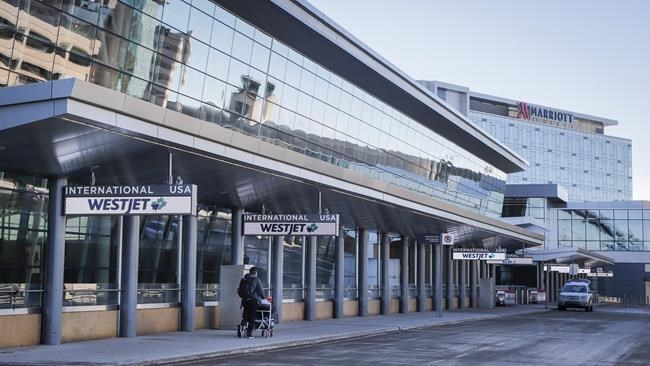The president of the African Community Association of Calgary says its members feel hurt and believe it's important for the federal government to address what they say is subtle racism behind Canada's new COVID-19 travel rules.
Michael Embaie says he appreciates Canada's effort to fight the pandemic and to limit the spread of the new Omicron variant. But he adds that Ottawa needs to explain why some rules are being enforced with a different measuring stick for African countries.
"Yes, we have to take all precautions ... I have no problem with that," said Embaie, who is also a part-time professor of immigration policy at the University of Calgary and has worked as a consultant for the United Nations and the federal government.
"But at the same time, Africans are being disparaged, looked at less than the other people. It hurts."
Canadians travelling from one of 10 African countries, including South Africa and Egypt, are required to obtain a COVID-19 test in the country they're leaving, obtain a second test while in transit and get a third after arrival in Canada before quarantining.
Ottawa initially announced a ban preventing foreign nationals in the region from travelling to Canada, but it quickly amended those rules so stranded Canadians could return home.
At the time, the World Health Organization warned against overreaction before more was known about the variant.
Dr. Zain Chagla, an associate professor of medicine at McMaster University in Hamilton, told The Canadian Press that "blind closures'' don't make scientific sense. The variant may have been detected in South Africa because the country has good genomic surveillance, he said.
"This has likely been circulating for some time,'' Chagla said Tuesday. "It doesn't really make sense that we use rigid travel bans as a way of preventing cases, as compared to mitigating spread.''
Epidemiologist Dr. Prabhat Jha of St. Michael's Hospital in Toronto has also said Canada's travel ban is counterproductive.
"They're not fully informed by what we know about the science. We've known that it didn't really help slow the introduction of (the) Delta (variant)."
Jha said testing before boarding a plane and on arrival is reasonable and should be done more rapidly and at a larger scale. Since the ban and new rules were put in place, cases of Omicron have been reported in the United States and the United Kingdom.
Transport Minister Omar Alghabra has said the government exempted the United States from the initial ban because it was testing travellers departing the country and had few cases of the new variant.
Embaie said South Africa was also testing, and refusal to accept the results of the country's tests is another example of how racism is present in politics.
"The speed that was seen in banning travel from southern Africa was just unheard of," Embaie said.
"You can't treat one country different from another country. It looks like the colonial mentality hasn't left."
He said community members have told him that they feel they have been targeted because of racist assumptions.
"Let's call it by its name."
Canada's health minister did not immediately respond to a request for comment.
This report by The Canadian Press was first published Dec. 7, 2021.
— With files from Sarah Smellie in St. John's, NL
___
This story was produced with the financial assistance of the Facebook and Canadian Press News Fellowship
Fakiha Baig, The Canadian Press


